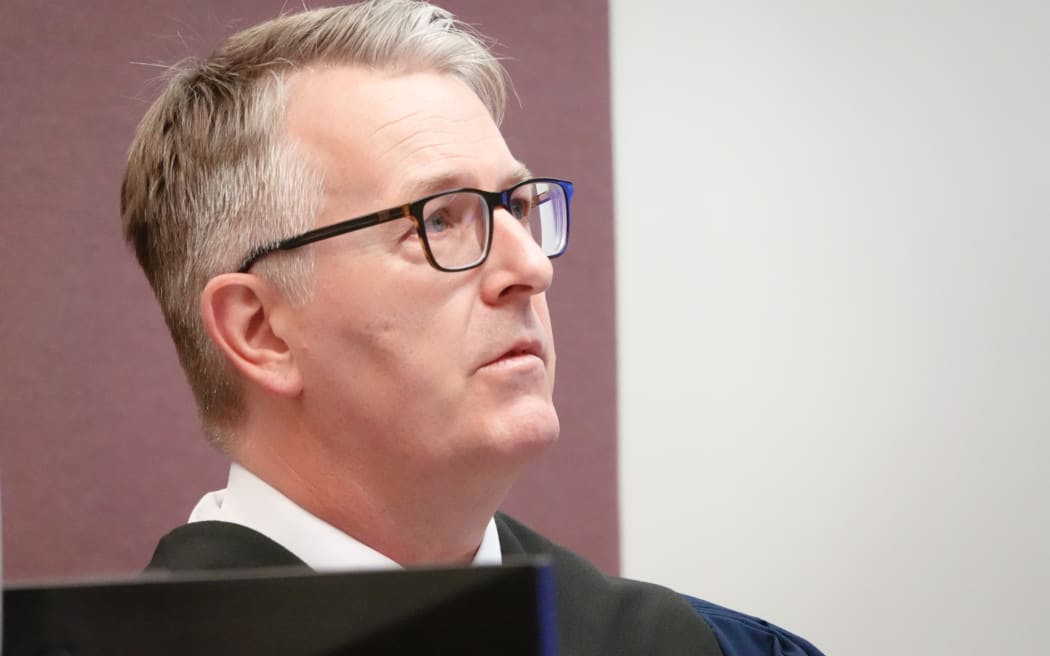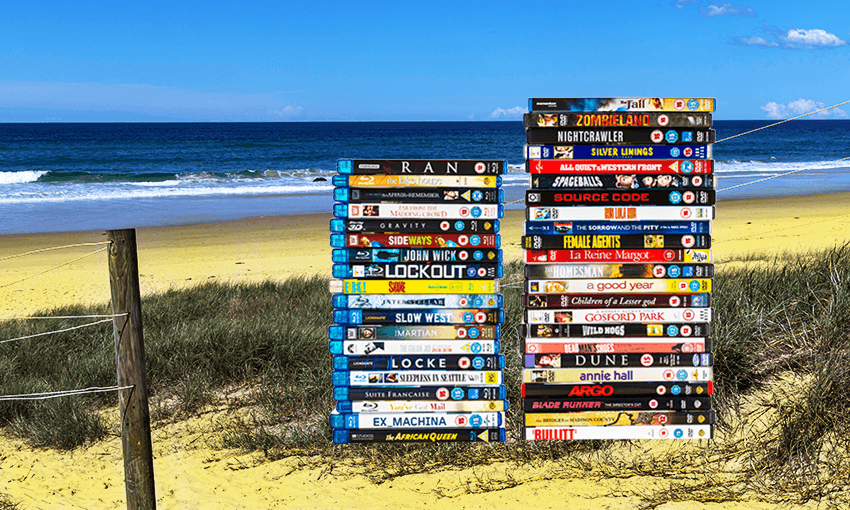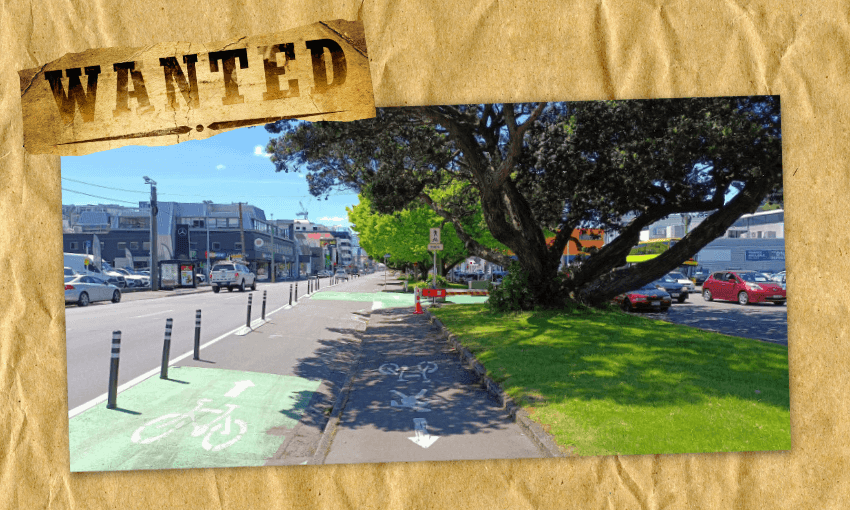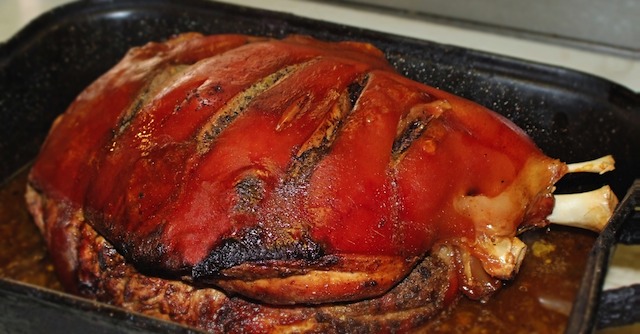This story discusses details of suicide.
The father of a 21-year-old Palmerston North Hospital mental health ward patient who died in a suspected suicide has opened an inquest into her death with an emotional plea for change.
A picture of Erica Hume is sitting in the courtroom next to where her mother Carey (left) and father Owen (right) are sitting.
Photo: RNZ / Jimmy Ellingham
University student Erica Hume died on 16 May 2014, nine days after suffering injuries she did not recover from when at the ward.
In the Palmerston North District Court on Monday morning her father, Owen Hume, said mental healthcare needed to improve.
“The questions that will be asked at this inquest may take many people people out of their comfort zones, but if we are to truly get transformational change then that’s what has to happen.
“So, let’s get on and do what we are here for,” he said.
“When Erica entered ward 21 on the 6th [of May], Erica did not want to die. She wanted to live, and she asked for help.”
Owen Hume read a statement about his daughter – “a daughter any father would be proud of. Still is”. He and his wife Carey placed a picture of Erica in the courtroom next to where they were sitting.
Owen Hume said Erica’s mental health problems began when she was in her second-to-last year at high school in Bay of Plenty.
She received counselling from the school counsellor and was taken a doctor, where she was prescribed anti-psychotic medication.
Owen and Carey Hume were not told anything about what was happening for more than a year until, out of the blue, they received a call from the counsellor saying they were trying to admit Erica to the mental health ward at Tauranga.
The Bay of Plenty District Health Board file notes recorded that Erica’s problems could have related to her prescribed medication, and that her counsellor was to have no more contact.
Erica Hume was admitted to the mental health ward after she went to hospital when she took an overdose and attempted to self-harm.
She recovered, and continued with her plan to move to Palmerston North to study at Massey University.
“Whilst we were anxious, we had a plan with Erica,” Owen Hume said.
“Bay of Plenty mental health had referred Erica to MidCentral mental health. And we were given assurances she would be looked after. We fully expected Erica to be taken on.”
MidCentral mental health services did not think she was bad enough to take on as a patient, but that changed during her first year at university after several self-harming incidents.

Owen Hume says mental healthcare needs transformational change.
Photo: RNZ / Jimmy Ellingham
Even then, Owen Hume said, Erica’s care by mental health services was not managed well and for some reason her pleas for help were not believed.
“I suppose she wasn’t doing illegal drugs, not an alcoholic, was young, pretty, going to uni, functioning, therefore couldn’t be that bad…
“No recognition was given that it took every bit of Erica’s energy to be that functioning person, to tackle another day.”
After Erica’s death her parents pushed for a review of mental health care at MidCentral. Among other findings was that the Palmerston North Hospital ward was not fit for purpose. Construction on a new one is due to begin later this year.
Owen Hume said he believed there were flaws with the MidCentral mental health system and ward 21, including poor policies and procedures; a poor culture on the mental health ward; the ward itself was dangerous for patients; overworked and unsupported staff; and a DHB more interested in damage control than finding the truth.

Coroner Matthew Bates apologised to Erica Hume’s family about delays in the inquest.
Photo: RNZ / Jimmy Ellingham
Coroner Matthew Bates read an agreed summary of facts that said the day before she suffered fatal injuries at the ward Erica Hume had a scheduled appointment with a nurse, whose name is suppressed.
She told the nurse her mood was low and she was having thoughts of self-harm and suicide.
“Erica reported two triggers for her feelings: A DVD about self-harming from her university psychology class, and the recent death of a friend.”
Erica did not name the friend, but it later emerged it was Shaun Gray, who died in a suspected suicide at the Palmerston North Hospital mental health ward on 16 April.
An inquest into his death was held in May and June. Coroner Bates has reserved his decision.
After she was assessed by a psychiatrist, it was decided Erica would be admitted to the mental health ward.
Her risk assessment form on admission said she posed a high risk of self-farm. Overnight she was checked by staff every 30 minutes.
On the ward there was a problem with her medication and she did not receive her prescribed doses on the evening of 6 May 2014 or the morning of 7 May.
On 7 May Erica spent some of the morning in the courtyard with other patients, and had called community mental health services asking for her cellphone to be brought to the ward.
A nurse spoke to her as she walked to the dining room about 12.30pm, and she denied having thoughts of suicide or self-harm.
Erica returned to her room about 12.39pm. She was found unconscious 20 minutes later, before she was transferred to the hospital’s intensive care unit, where she died nine days later.
The coroner apologised to the Hume family for how long it had taken for the inquest to happen.
“I have no doubt that the time it’s taken to reach this point has added to the toll it’s taken on the family.”
Bates said he was the third coroner to deal with the case, and it had to be heard after the Gray inquest.
Since 2014 there have been further deaths of ward patients, including a 19-year-old man who died late last year in a suspected suicide.
“There’s still work to be done. I don’t think anyone in this room would say otherwise,” Bates said.
The coroner has written a 64-point list of issues the inquest will explore, including Erica Hume’s admission and handover procedures, medication, and staff ratios and training.
The inquest is expected to take three weeks.
Where to get help:
Need to Talk? Free call or text 1737 any time to speak to a trained counsellor, for any reason.
Lifeline: 0800 543 354 or text HELP to 4357
Suicide Crisis Helpline: 0508 828 865 / 0508 TAUTOKO (24/7). This is a service for people who may be thinking about suicide, or those who are concerned about family or friends.
Depression Helpline: 0800 111 757 (24/7) or text 4202
Samaritans: 0800 726 666 (24/7)
Youthline: 0800 376 633 (24/7) or free text 234 (8am-12am), or email talk@youthline.co.nz
What’s Up: online chat (3pm-10pm) or 0800 WHATSUP / 0800 9428 787 helpline (12pm-10pm weekdays, 3pm-11pm weekends)
Asian Family Services: 0800 862 342 Monday to Friday 9am to 8pm or text 832 Monday to Friday 9am – 5pm. Languages spoken: Mandarin, Cantonese, Korean, Vietnamese, Thai, Japanese, Hindi, Gujarati, Marathi and English.
Rural Support Trust Helpline: 0800 787 254
Healthline: 0800 611 116
Rainbow Youth: (09) 376 4155
OUTLine: 0800 688 5463 (6pm-9pm)
If it is an emergency and you feel like you or someone else is at risk, call 111.





















Discussion about this post